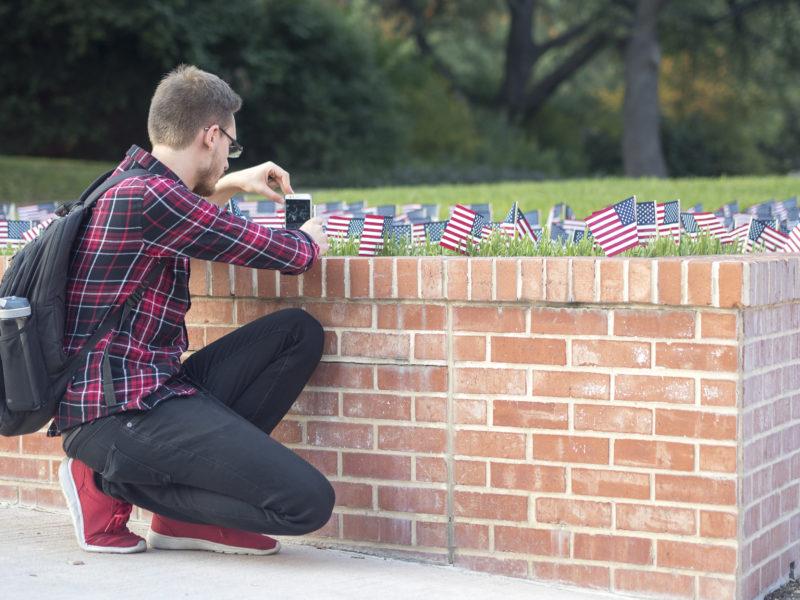Right now, the U.S. is in a crucial moment in history. In a few years, people will look back at 2017 and point to the actions being taken with regard to resolving an issue as old as the nation itself: how does a nation deal with its own history? I am not an American “” I am one of the current German Fulbrighters at Trinity, and I will try to give you a view on how visiting outsiders see the U.S.-American culture of history.
It is significant to note that we are here during times of a social restlessness that have been fueled by the aftermath of the presidential election. You now have a man at the top of the state who acts very differently from his predecessor in office. The rescission of DACA, for example, is causing upheaval among hundreds of thousands of young people who were taken to the U.S. as children and try so hard to be accepted members of society, and is promoting racial bias against those same people.
Many voices say President Trump’s campaign offered white nationalists a political home in the mainstream. Seeing “alt-righters” and members of the National Socialist Movement “” Nazis “” march openly in the streets of Charlottesville definitely supports this notion. And all of this is covered by your interpretation of freedom of speech. This is one thing we would never have in Germany “” yes, there are people who have a strong affiliation towards right-wing ideology, but the use of swastikas and making use of hate speech can actually get you imprisoned. However, despite the rise of right-wing movements and the return of increasing racial tensions, I think the United States is on the right track.
During the past few weeks, city councils in Texas have voted on the removal of Confederate statues from public spaces “” such as Dallas’ Lee Park and San Antonio’s Travis Park. Last week, our Fulbright group had the chance to attend a San Antonio city council meeting, and I am more than confident that your representatives made the right decision “” politically and morally “” to take down the statue. And just this Tuesday, Republican Texas House Speaker Joe Straus called for the removal of a Confederate plaque from the Texas Capitol building which claims that “the war between the states was not a rebellion, nor was its underlying cause to sustain slavery.”
I strongly believe that this approach of taking down Confederate monuments is a very good starting point to resume the debate about history. To some people that might seem extreme, but only by taking such actions is it possible to address painful subjects in a way that can bring a change. And what America needs right now is a change in its culture of remembrance. But to be clear: I do not want to sound patronizing. I want to share my experience on how Germany deals with its own historical burden. I almost wrote “our” burden, but being a 20-year-old I do not feel responsible for our history. What I feel responsible for is to make sure that the past is remembered objectively, adequately and in a way that makes today’s Germany a place where its people are able to live together in harmony, stressing and acknowledging diversity.
Removing memorials is not rewriting or forgetting history. By taking down symbols of times long gone, a people actively chooses to address and acknowledge the wrong that is linked to these embodiments of once-dominant ideas and notions in a society. Trust me, you will not forget your past after removing the Confederate memorials. What is going to happen is a shift in public debate on how the Civil War is remembered. By putting the statues into museums and labeling them with historically correct plaques, you will be able to create a whole new and appropriate way of educating on and remembering the past. Eventually, America will be able to shake off the ghosts that have been haunting it for so long, and some time down the road it will come to terms with its past, even if this road is still long and hard.






